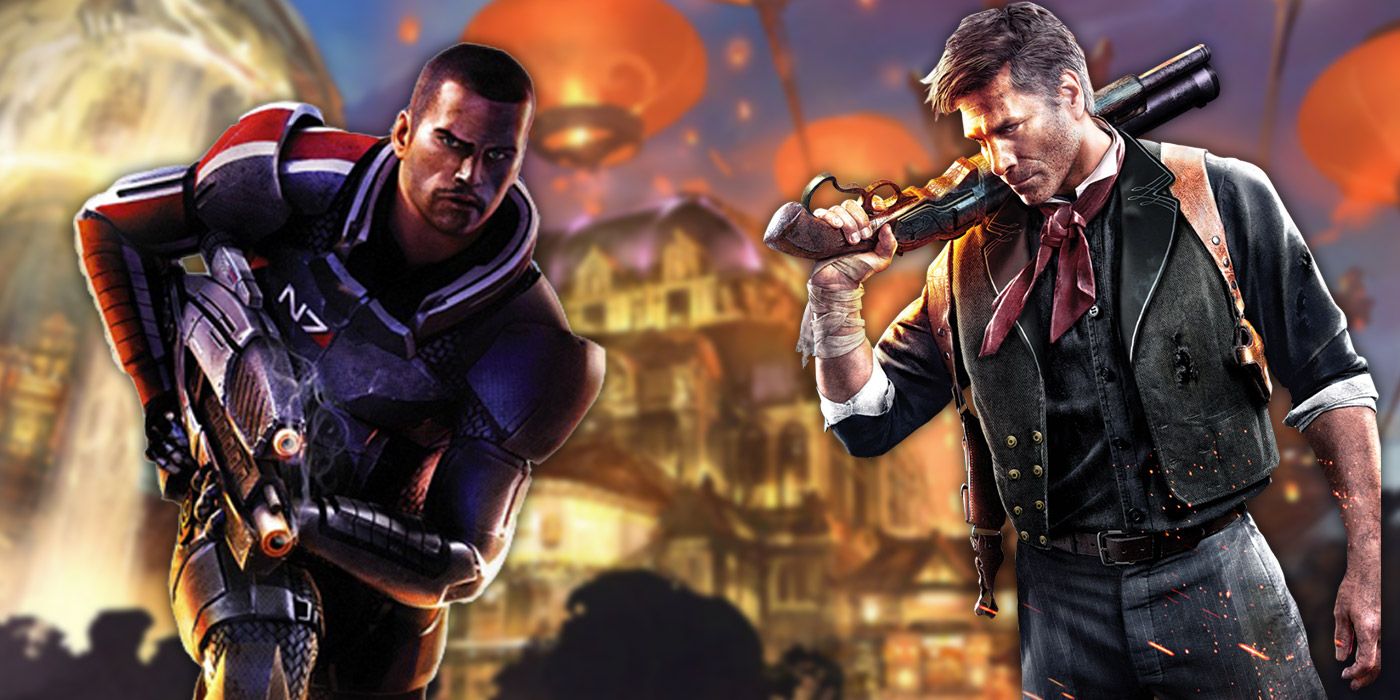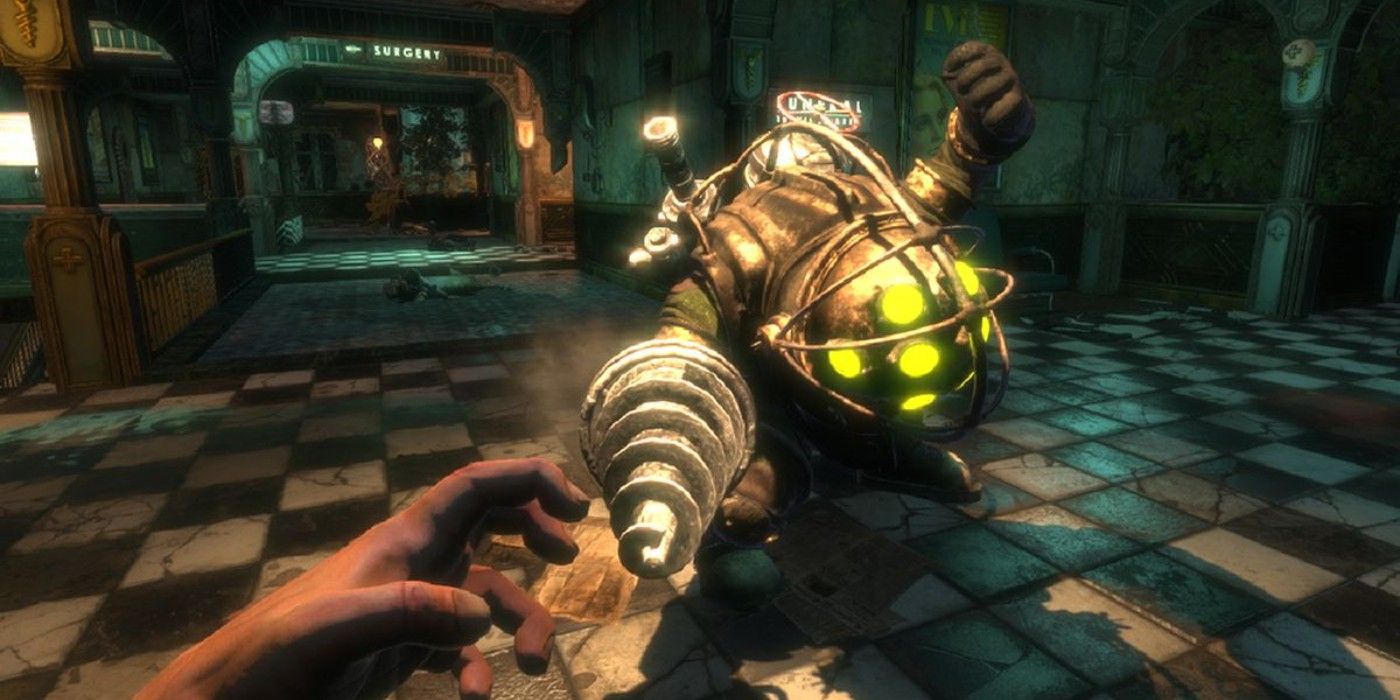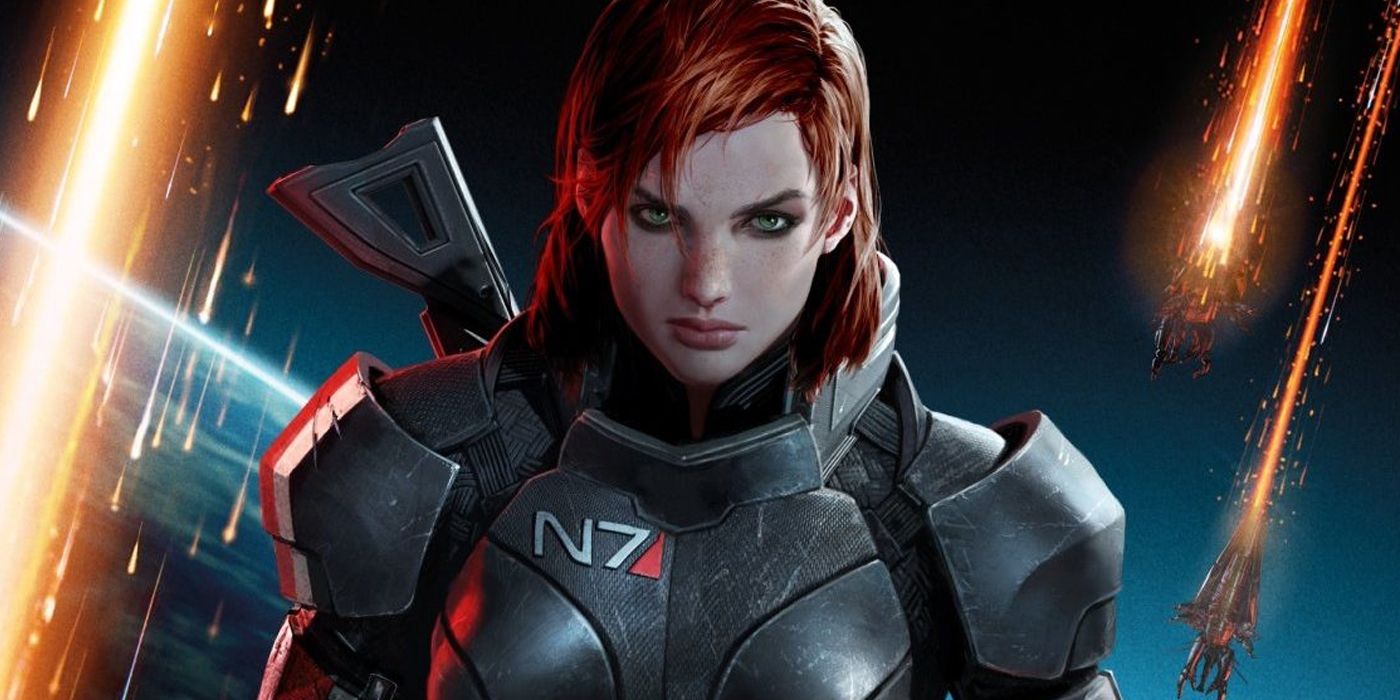
Mass Effect and BioShock may not be the most obvious franchises to compare, but they are both at a pivotal moment in that they are both returning with a fourth game. Trilogies are enormously common in both film series and games, and so the fourth game of any series represents both an opportunity and a dilemma. After three games, fans will be loyal and dedicated to the characters and setting they have grown to love.
However, both Mass Effect and BioShock have had numerous settings and characters changes, and so how they deal with creating the fourth entry into their respective series' is definitely worth comparison. Additionally, both series had controversial entries that already tried to play around with the format of the other games, and so there is all the more pressure and anticipation for these new entries.
RELATED: BioShock 4: The Case to Leave the Original Games Behind

The imaginative settings of BioShock and Mass Effect are a big reason for both series' success. Mass Effect gave gamers a chance to explore the cosmos, with a host of complex and compelling alien creatures. BioShock had gamers explore some of the most fantastical settings, with an underwater city and a city in the sky. The setting is hugely important in creating the atmosphere and experience of a game, and both the first BioShock and Mass Effect nailed the setting so well that players didn't want to leave.
Similarly, the characters that appear in both series are beloved by fans. Particularly in Mass Effect, fans of the series spent three games playing as Commander Shepard. The fact that Mass Effect contains role-playing elements makes this all the more significant, as every player got to play as their own version of Shepard. Since it looks like players will possibly get to assume control of Shepard again, expectations are high as to where the story will go. The alien races of the Mass Effect universe have similarly become iconic, and BioWare must now find a balance in the upcoming game between injecting new and exciting characters in the series and bringing back old fan favorites.
BioShock, on the other hand, has had different protagonists for each entry in the franchise. However, the enemies and iconography of the first two games are very well-beloved. The unique Big Daddy enemies of BioShock 1 and 2 have become an iconic representation of the captivating world of Rapture. Similar to Mass Effect, the question that now poses developers is how much to keep the same and how much to change. When BioShock did try to change the setting, to an equally as interesting city in the sky, the response was mixed. Even though BioShock: Infinite marked the return of Kev Levine, there was a lot of uncertainty and mixed response surrounding the change of setting and how the plot handled the controversial subject matter, such as racism.
Infinite is simply a different game than BioShock 1 and 2, but it does retain its connection to Rapture and the spirit of the first game. Similarly, when Mass Effect: Andromeda moved the story into a different galaxy with different characters than the rest of the Mass Effect franchise, the response was mixed, as it then became much more of a side game rather than part of the Shepard trilogy.

Mass Effect and BioShock have one very big thing in common, which is that they both emphasize choice-based play. BioShock attracted a lot of attention for its exploration of choice in video games, as all video games are scripted and the choices players have will always be limited. Mass Effect is less overt about the implications of choice-based play, and doesn't engage in philosophical debates quite as much as BioShock, but it too has choices within the game that affect the events that follow.
While they do have this gameplay element in common, the expectations for the upcoming BioShock 4 and Mass Effect 4 are different. Since BioShock confronts larger questions about how games are played, with Infinite attempting to highlight that gameplay choices are always limited, then the upcoming game is expected to play around with that formula a lot more. The next Mass Effect game featuring Shepard seems to indicate that this franchise is going back to its roots, but again developers will have to inject something new to keep Mass Effect players engaged.
By their nature, as franchises/series progress they naturally must reinvent while still retaining whatever it was that made the original game appealing. The Resident Evil series, for example, has had a glorious return with the new games that reinvigorate gameplay and setting while retaining certain patented Resident Evil tropes and iconography. BioShock and Mass Effect face similar challenges in releasing new games, and while the expectations for each game may be somewhat different, it will be of huge significance to see how these massive franchises perform under the pressure of such high anticipation.
Mass Effect 4 and BioShock 4 are currently in development.

